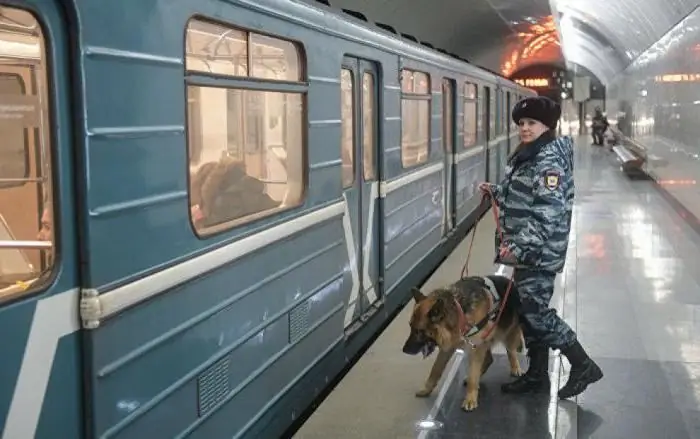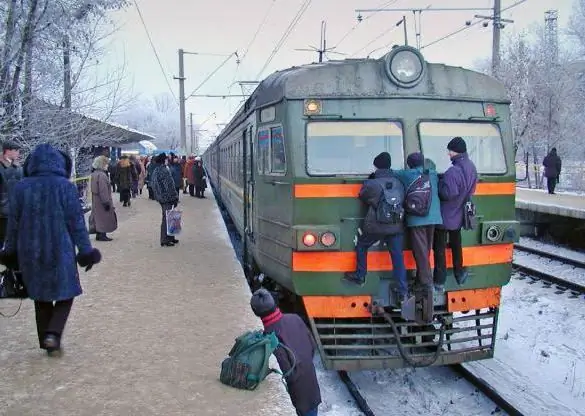2026 Author: Howard Calhoun | calhoun@techconfronts.com. Last modified: 2025-01-24 13:10:30
People move from city to city, from one locality to another. And this is normal, since the process of migration is natural and permanent in any country and any society. It cannot be stopped, it can only be limited to some extent (of course, within the law). The reasons for these maneuvers (“migration of peoples”) can be completely different:
- personal motives of each individual citizen;
- interests of the state (for example, security or defense);
- travel related to job search;
- desire to arrange your family life;
- climatic conditions and others.

In Russia, such a federal executive body as the FMS (Federal Migration Service) exercises control, supervision and provision of public services in the field of migration. And now the structure of the central apparatus of this body includes the Federal Migration Service (abbreviation stands for - Office of the Federal Migration Service).
To whom the Federal Migration Service reports
For more than 12 years - since 2004 - the Federal Migration Service has been completely subordinate to the Government of Russia. But on April 5, 2016, everything “returned to normal”. Namely, in accordance with the Decree of the President of the Russian Federation VladimirVladimirovich Putin, the FMS again became subordinate to the Ministry of Internal Affairs of the Russian Federation.

Note! Employees of the Federal Migration Service (their staff was reduced by 30%), who passed the certification, are personnel employees of the Ministry of Internal Affairs, who are assigned certain ranks as they advance in the service. Other employees of this executive body are civil servants working in state structures.
History of the formation of the FMS of Russia
The year of formation of a separate structure of the FMS is considered 1993. It was then that this service appeared in accordance with the Decree of the Council of Ministers. True, in 2000, the FMS was abolished (there were various objective reasons for this), and all its functions were transferred to the Ministry of Nationalities (the Ministry of the Russian Federation for Nationalities and Regional Policy).
But time passed, and migration began to take on an uncontrolled character, and this, in turn, had a negative impact on the situation in the country, which became more and more criminogenic. It was then that the government (in February 2002) made an important decision to make the Federal Migration Service (you already know the transcript) a part of such a structure as the Ministry of Internal Affairs of the Russian Federation.
This situation lasted for two years. In 2004, the FMS of the Russian Federation received the status of an independent unit. In accordance with Decree of the President of Russia No. 928, he was in charge of passport, visa and migration issues. The government document identified:
- headcount of the new executive body;
- its structure, includingnumber and number of the Federal Migration Service (see transcript above);
- main functions and powers entrusted to him.

Structure
At the head of such a structure as the FMS of the Russian Federation is a director who bears, by the way, personal responsibility for all decisions made by the Service. Only the president of the country has the right to appoint or dismiss a person (by the way, represented by the chairman of the government) to this position.
Six deputies help the director in his work. The total staff of the migration service is about 18,000 people: about 12,000 are regular employees of the Ministry of Internal Affairs, 3,500 are civil servants, and 2,500 are other workers.
The central office of the migration service includes eleven FMS (you already know the transcript) and several centers.
Main activities of the Federal Migration Service
In total, there are 11 departments that deal with the following issues:
- control of migration flows;
- citizenship;
- organization of registration and visa activities;
- passport service and registration of citizens;

- labor migration;
- cooperation on the world stage;
- legal support;
- crisis management;
- financial and economic support;
- analysis and organization;
- office work.
Center Matters
BesidesThe Federal Migration Service of Russia (see transcript above), the executive body includes three centers:
- Passport and visa. Owns a large information base.
- For citizens of the Russian Federation who have questions regarding visas and passport regime.
- Center for processing invitations from citizens of other countries.
FMS functions
The Federal Migration Service (the transcript is given above) is entrusted with:
- Proper execution and, of course, the issuance of documents such as civil and foreign passports.
- Proceedings related to Russian citizenship.
- Registration actions for registering citizens of the Russian Federation, depending on the place of residence (or stay) within the borders of the country, as well as monitoring strict adherence to all the rules for registration and deregistration.

- Registration in accordance with all the rules and issuance of documents allowing citizens from other countries (as well as persons without any citizenship) to enter the territory of Russia; reside in the country for a certain period of time; as well as supervision and control over how those who entered comply with the rules of migration, residence and stay.
- Prevention and suppression of illegal migration (in cooperation with other government agencies). It is expressed in the control of labor migrants, as well as in attracting foreigners to Russia as a labor force and employment of Russian citizens outside the country.
- Management of the TP of the Federal Migration Service (decoding - territorial divisionOffice of the Federal Migration Service).
- Monitoring compliance with the RF LC regarding refugees and internally displaced persons.
- Dealing with asylum (political) issues for citizens from other countries.
- Implementation of other additional functions that are directly within the scope of the structure. Naturally, if they do not contradict the Decrees of the President, government decrees, as well as legislative acts.
Funding the Federal Migration Service
The issue of funding is always very important. The activity of this or that structure as a whole sometimes depends on how competently it will be resolved. So, the financing of all expenses related to the work of the head apparatus of such a service in Russia as the migration service, and all the Federal Migration Service (decoding is presented above), is included in the federal budget of the country.
Recommended:
The bankruptcy estate of the debtor: the concept, powers and rights of the manager, the scheme for filing a bankruptcy declaration and bidding

If the borrower cannot repay all the claims of creditors on time and in full, then by a court decision he may be declared bankrupt. In this case, the bankruptcy estate of the debtor is assessed. All property owned by the enterprise at the time of commencement of bankruptcy proceedings is subject to valuation. The proceeds from the sale of these facilities are used to pay off debt
What does the BTI do: functions, powers, decoding of the abbreviation

It is necessary to note the benefits of the work of the BTI structure, no matter how it is corrected, innovations are introduced. This department controls the legality of buildings and projects. Citizens must be sure that their floor will not collapse from the fact that someone needed to move the supporting structure at their own discretion
RBI: transcript and what kind of work it is. How to get into the ranks of employees of private companies, and what is needed for this

Faced with the abbreviation GBR for the first time, not everyone knows how it stands for. What is a GBR? These three letters are deciphered as "rapid response group". Most often in the modern business world, these are employees of private security services, whose services are included in the complex of protective measures
The sole executive body of a legal entity: functions and powers

Any legal entity must have its own executive body. It can be one subject or a group of citizens. The competence of the management includes operational activities, control and organization of the company's work
Organizational structure of Russian Railways. Scheme of the management structure of Russian Railways. Structure of Russian Railways and its divisions

The structure of Russian Railways, in addition to the management apparatus, includes various dependent divisions, representative offices in other countries, as well as branches and subsidiaries. The head office of the company is located at: Moscow, st. New Basmannaya d 2

